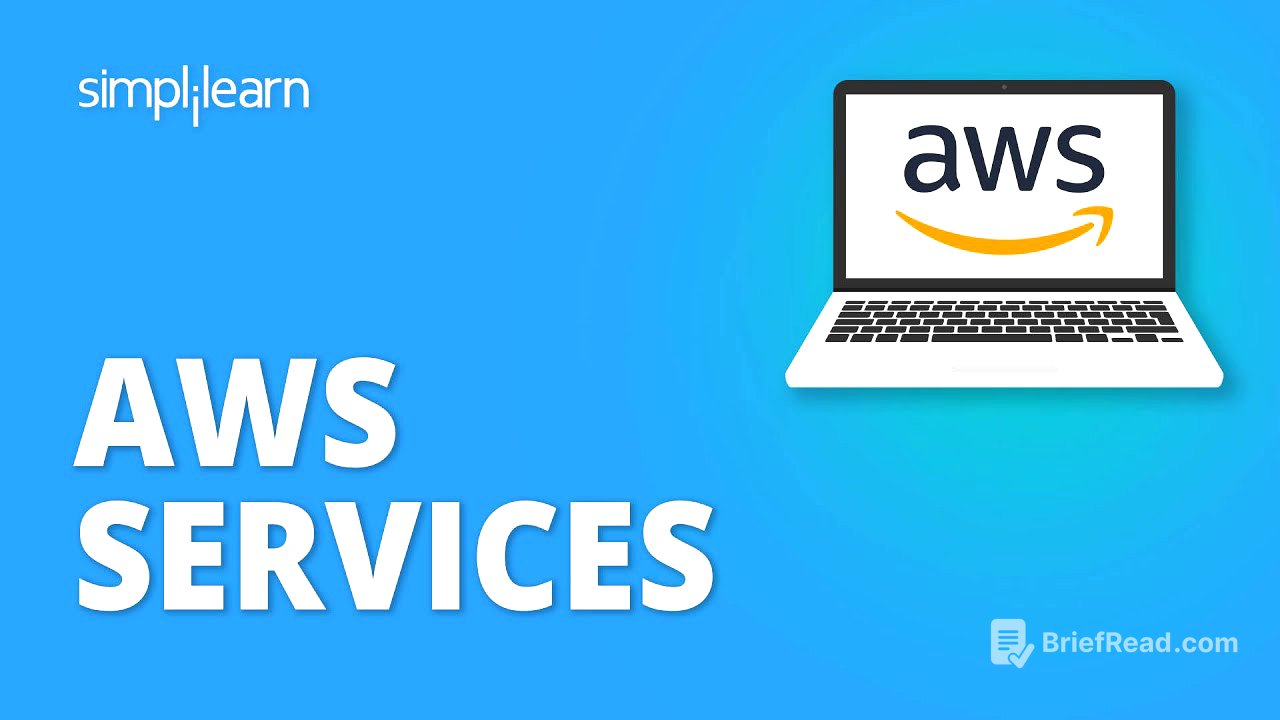TLDR;
Okay guys, so this video is all about AWS services. It starts with a basic intro to AWS, then goes into the benefits of using AWS, and finally, it touches upon various AWS services like compute, storage, database, networking, security, management tools, and developer tools. There's also a demo of some key services like EC2, S3, DynamoDB, Route 53, IAM, and CloudWatch.
- AWS is a widely used cloud platform offering on-demand services like compute power, database storage, and content delivery.
- Key benefits of AWS include ease of use, flexibility, reliability, scalability, cost-effectiveness, and robust security.
- The video provides a demo of essential AWS services such as EC2, S3, DynamoDB, Route 53, IAM, and CloudWatch.
What is AWS? [0:00]
AWS, or Amazon Web Services, is a cloud platform that provides on-demand services like compute power, database storage, and content delivery. It helps businesses scale and grow by offering services over the internet, similar to the worldwide web. AWS is the largest cloud platform, allowing users to create applications and databases.
Benefits of AWS [1:42]
AWS is easy to use with good internet connectivity via a web console or command-line interfaces. It offers flexibility to tweak solutions as needed. AWS provides reliability through redundant infrastructure globally, ensuring minimal downtime for applications and databases. Scalability is a key feature, allowing resources to be scaled up on the fly. AWS is cost-effective, charging only for hourly usage, unlike the complete costs of traditional data centers. Security is enhanced with infrastructure-level measures and application-level features.
AWS Services [3:48]
Essential AWS services include compute, storage, database, migration, networking, content delivery, developer tools, management tools, media services, machine learning, analytics, security, identity and compliance, mobile services, application integration, AR/VR, customer engagement, business productivity, desktop and app streaming, and IoT.
Compute Service [4:32]
Compute services help developers build, deploy, and scale applications in the cloud. Key services include EC2, Lambda, Elastic Container Service, Elastic Load Balancer, Lightsail, and Elastic Beanstalk. EC2 (Elastic Cloud Compute) allows renting virtual machines with customizable operating systems. Lambda is a serverless compute service for executing code without managing servers.
Storage Service [5:57]
Storage services include S3, Glacier, EBS (Elastic Block Storage), and Storage Gateway. AWS provides web data storage for archiving and disaster recovery with high durability. S3 (Simple Storage Service) offers cloud-based storage for online data backup using buckets to store files. EBS is a virtual hard drive attached to EC2, providing high availability storage for persistent data.
Database Service [7:08]
AWS database services offer cost-efficient, secure, and scalable database instances. Services include RDS (Relational Database Service), DynamoDB (NoSQL database), ElastiCache, and Amazon Redshift. DynamoDB is a flexible NoSQL database service providing fast and reliable performance, suitable for mobile and gaming applications. RDS is a managed relational database service supporting various vendors like PostgreSQL, MySQL, Oracle, and SQL Server, including Amazon Aurora and MariaDB.
Networking Service [8:57]
Networking services offer a secure cloud platform, connecting physical networks to private virtual networks with high transfer speeds. Key services include VPC (Virtual Private Cloud), Route 53 (DNS mapping service), Direct Connect, and CloudFront (Content Delivery Service). VPC helps deploy AWS resources like EC2 instances in a private virtual cloud for enhanced security. Route 53 translates text into IP addresses, routing software and domains to AWS services.
Developer Tools Service [10:47]
Developer tool services help users build, deploy, and run applications automatically, updating servers and instances. Services include CodeStar, CodeBuild, CodeDeploy, and CodePipeline. CodeStar manages application development in one place, enabling quick development, building, and deployment on AWS. CodeBuild removes the hassle of managing physical servers, helping developers build and test code with continuous scaling.
Security Service [11:19]
Security, identity, and compliance services help monitor a safe environment for AWS resources by providing limited access to specific users. Key services include IAM, KMS, Cognito, and WAF. IAM (Identity Access Management) maintains secure access to AWS services, allowing admins to provide users with limited privileges. KMS enables users to create and manage encryption keys for encrypting data.
Management Tools Service [12:39]
Management tools help optimize costs, minimize risk, and automate resources on the AWS infrastructure. These tools allow monitoring of resources, applications, and utilizations, as well as scaling resources and auditing tasks. CloudWatch is a monitoring tool for AWS resources and customer applications. CloudFormation helps monitor all AWS resources in one place, deploying entire solutions using templates for automation.


![[Eng Sub] Renegade Immortal EP119](https://wm-img.halpindev.com/p-briefread_c-10_b-10/urlb/aHR0cDovL2ltZy55b3V0dWJlLmNvbS92aS9vLURqQXgySURKUS9ocWRlZmF1bHQuanBn.jpg)






